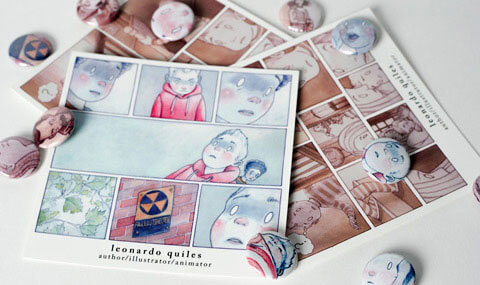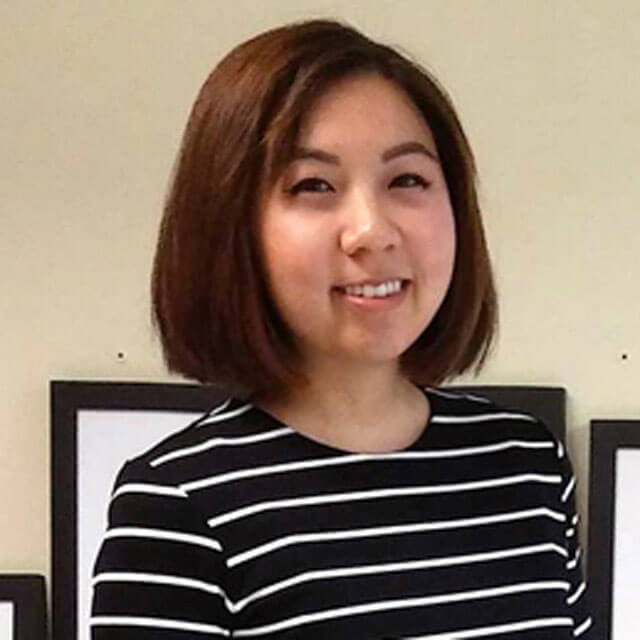Your perspective, illustrated. The illustration program develops your artistic abilities to effectively convey visual concepts for clients in the marketplace.
About the Program

Its rigors emphasize conceptual problem-solving, technical expertise, meeting deadlines, and other professional practices. We stress drawing knowledge and skill as the basis for all visual conceptualization. This is applied to both traditional and digital mediums.
We’ll sharpen your professional standards through sophomore and junior reviews. Our program prepares you to work at a professional level, with a comprehensive understanding of illustration and the ability to merge your client’s needs with your personal style.
Students can elect to pursue a Bachelor of Fine Arts (BFA) or a minor.
Featured Courses
After your foundation year, this program guides you through a series of independent studios and illustration intensives focused on editorial, advertising, and book work, using both digital and traditional methods. You must complete 77–80 studio credits for your major, plus 45–46 academic credits.
For a full list of requirements, visit the course catalog.
Core Classes
ILS 210 | Drawing for Illustration
ILS 220 | Intro to Illustration
ILS 320 | Illustration I (Oil)
ILS 330 | Illustration II (Acrylic)
ILS 332 | Illustration III (Watercolor)
ILS 333 | Figure Illustration
ILS 336 | Digital Illustration
ILS 289 | Sophomore Review
ILS 389 | Junior Review
Electives
ILS 442 | Advertising
ILS 440 | Editorial
ILS 338 | Book
ILS 443 | Portfolio Prep
ILS 444 | Senior project
Additional Requirements
20 credits from Foundation year
- 3 credits in each of the following (12 total):
- PTG/DWG or DES
- SCL
- MDA or VDO or PHO
- ILS or GRA
- 3 credits of Mathematics (M 110, 112, 114, or 116)
- 6 credits in academic writing (WRT 110 and 111)
- 12 credits in Art History (ART)
- 12–13 credits from the All University Curriculum
Leah Dorman '24,UHart helped me pursue my dream in working in the illustration and animation industries, providing me with wonderful resources and professors who all strove to bring their students to success.
You, Career Ready

Graduates with an illustration degree work in a variety of creative fields, from illustrating children's books, to advertising and editorial markets. Additionally our illustration program is helmed by some of the best professionals in the field. They are extraordinary in the classroom, and recognized as practicing artists in their own right and provide valuable connections and support.
One of our thriving graduates is Cindy Lau '16. She currently works at Taylor Design as a print and interactive designer. She produces work for corporations, universities, and local businesses. Her projects rotate on a daily basis between branding, print design, UI/UX, prototyping, and illustrating for clients. Previously, she worked at ESPN as a motion graphics designer on the creative services team, where she made graphics and animations for SportsCenter, His & Hers, and Mike & Mike. She has also been involved in many exhibitions and lectures at HAS, as well as served as a visiting professor faculty member.
Success Stories
Our people, thriving as creatives. At the Hartford Art School, we all live and breath the creative process. Read about some of our recent students' success stories here.
Illustration
Admission Requirements
There are a few ways students can apply for admission to Hartford Art School, all of which require a portfolio review. Visit our admissions section for step-by-step guidance, and remember that you can always give us a call. We’re here to help with any questions you may have.
Jackie Roche
BFA Illustration, 2009
Jackie Roche is a freelance cartoonist and illustrator in Chicago, Illinois, specializing in nonfiction history and journalism comics. She works both independently and in collaboration with writers and journalists. She is currently working with a journalist on a book about the Syrian refugee crisis.
“My education at the Hartford Art School and the University of Hartford gave me a multidisciplinary foundation that I use daily while researching, writing, illustrating, solving problems, and giving and receiving constructive criticism.”